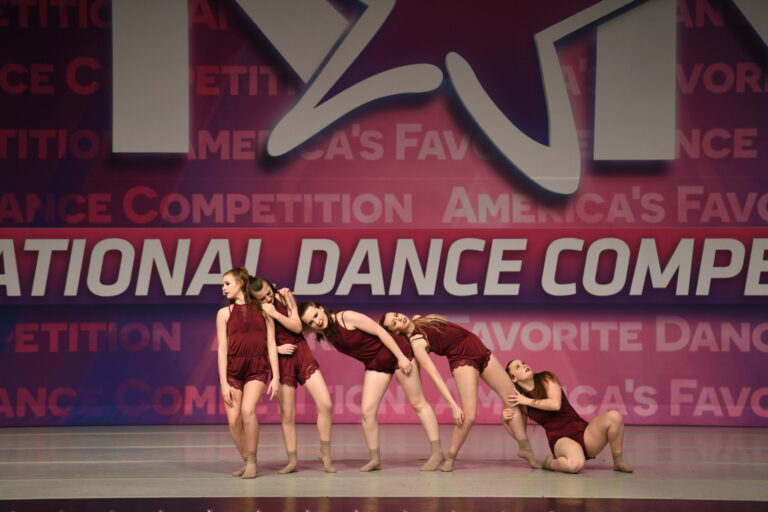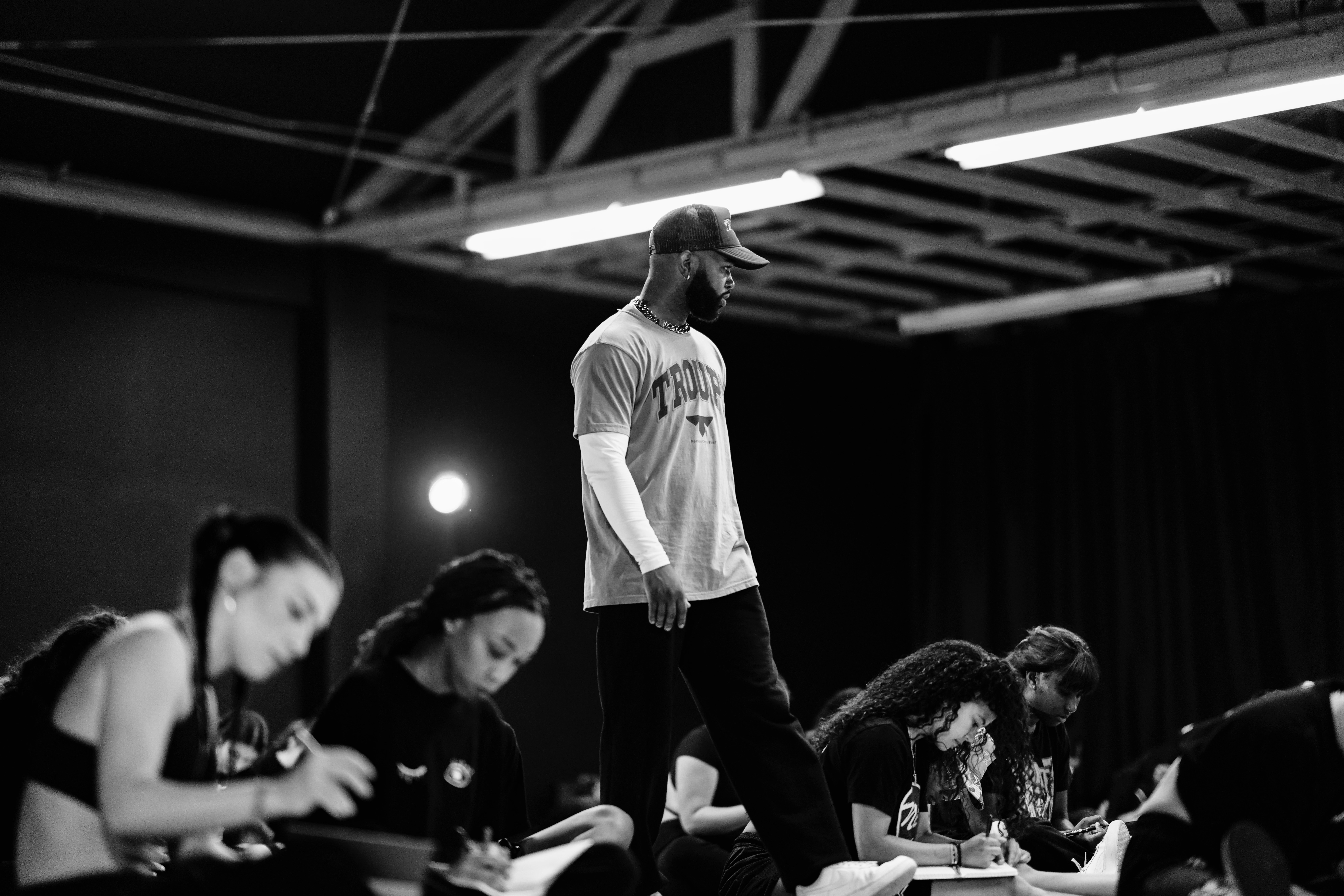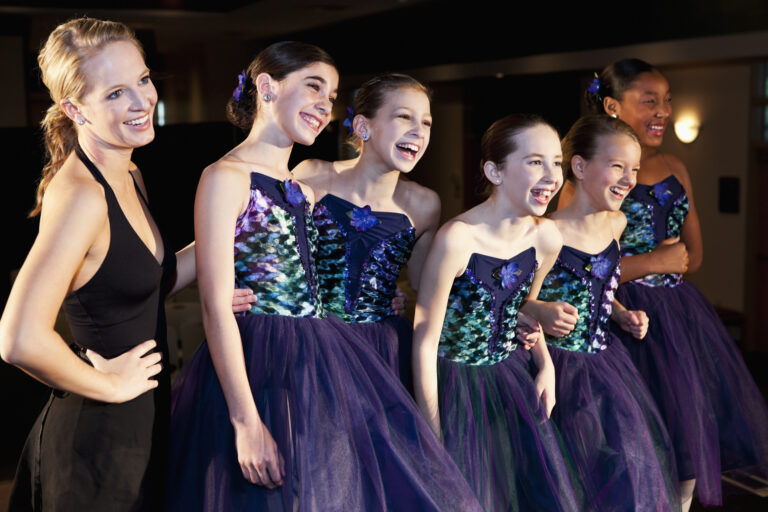Two women who stepped up to run their family businesses
Benson introduced modern dance to her mother’s ballet students.
Nicole Benson
Benson Academy of Dance
Ocala, Florida
Though Nicole Benson began her training in her mother’s small-town dance studio, the idea of taking over the family business didn’t cross her mind. “I knew my mom would never retire,” she says. “It’s what she loved to do. I wanted my own career path.” Yet by the time Benson was 31, her mother had died of cancer and Benson was back home in Ocala, Florida, doing what she’d never dreamed of. Determined to honor her mother’s legacy, Benson has drawn on diverse life experiences to inject fresh energy into the school over the past 10 years. “Now I couldn’t imagine doing anything else,” she says. “It was almost like I was led to it.”
Jeanne Benson-Smith, a former professional ballet dancer, opened her dance academy shortly after Nicole was born and passed her passion for ballet on to her daughter. “My mother and I were always best friends,” says Benson. “She was like supermom, always there for me.” Aware how ephemeral a dance career can be, Benson-Smith steered her daughter toward a nondance college degree; Benson reluctantly went to college for clinical health. But feeling unfulfilled as a clinical health educator, Benson soon enrolled in the MFA program in dance performance and education at SUNY Purchase. The program was eye-opening. “I was the black sheep of the master’s program because I had never had modern dance training,” she says, with a laugh. She continued her exploration of modern dance in New York City, training at the Limón Institute with an eye to joining that professional company, while also teaching dance and performing around the tristate area.
It was Benson’s grandfather’s cancer diagnosis that brought her back to Ocala. The two had been very close—even performing together as a dancing duo when Benson was little. To be closer to him during his final days, she began teaching at local Florida colleges and high schools, and in 2005 was offered a dream job—a full-time dance faculty position at Jacksonville University. She turned it down. Her mother had just become ill.
“For me, family comes first,” she says. “It wasn’t a hard choice. In the last days of my mom’s life, she looked me straight in the eye and said, ‘Nic, you got all this?’ It was her way of asking me to carry it on. I am so thankful that I chose the path I did.”
Benson proceeded carefully, respecting her mother’s foundation but putting her own stamp on the school and company. “It’d been her school and her philosophy,” she says. “Although that’s ingrained in me, I’m part of a different generation, with different influences and ideas.”
Her mother’s sudden death had been heartbreaking for the students. “At first, they were resentful because I wasn’t her, and couldn’t be her,” she says. “They had to go through the mourning process,” she says. “That required strength from the faculty, the students and myself.”
Drawing from her graduate studies, Benson first focused on restructuring the training program, establishing different levels, each with a codified syllabus, refining the requirements for each level, and placing children in the appropriate classes. “Doing this first directly impacted how the school would evolve,” she says. “As people saw improvement in our dancers and performances, they were willing to invest more in the school by letting their children take more classes—even things that were unfamiliar, like modern dance and hip hop.”
She also widened the school’s offerings, bringing what she’d learned in New York back to Ocala. “When I gave my first modern dance class here, people looked at me like I was from Mars,” she says, laughing. “It’s been interesting to be part of a new generation of local artists. Now we have accomplished contemporary choreographers doing innovative work here.” Even her work as a clinical health educator has come in handy. “As a dance teacher, you’re sometimes their mother, the doctor or the psychologist,” she says. “Having done orthopedic work in a clinical setting helps me in looking at alignment or when a child has an injury.”
Taking over the studio was a crash course in small-business ownership. “That was a learning curve,” she says. “It had been a family business, and my grandmother ran the office. It took time to streamline a business plan and create systems of my own.” Benson modernized step-by-step. As revenues increased, she updated the facility, redesigning the layout and adding a new sound system and flooring. Most recently she converted to a computerized scheduling, enrollment and tuition system. Enrollment is currently 150 students, and she is now building a website and doing some formal advertising. “Each year we’ve seen a percentage of growth, all by word of mouth and referrals from other people in the community,” she says.
As more students have enrolled at the school, Benson has added faculty, produced increasingly lavish productions for Marion Ballet Theatre (the studio’s resident performance company) and started the Annual Springtime Dance Festival. Slowly but successfully she has reintegrated herself into the community that adored her mother. “I’m able to celebrate my mom’s life every day with the hundreds of children who carry her spirit,” says Benson. “I miss her beyond words, but she lives in that.” —Caitlin Sims
Pendleton’s children, Ernest and Dominique, aren’t dancers, but have a deep appreciation for ballet.Melinda Pendleton
Pennsylvania Academy of Ballet
Narberth, PA
Melinda Pendleton literally grew up in the studio she now runs. Her parents, John White and Margarita de Saa White, met while performing with the Ballet Nacional de Cuba and founded Pennsylvania Academy of Ballet in 1974. During Pendleton’s childhood, they were still in the early stages of establishing their business. “They couldn’t afford a lot of teachers and were working at other studios just to make ends meet,” she says. “If I wasn’t one of their students, I’m not sure how much of them I would have seen!”
Now, as the mother of two children who are more involved in sports than dance, she has had to learn how to balance her studio life with the needs of her family. “When my kids were younger, I didn’t teach in the mornings so I could be home with them,” she says. Her son never wanted to dance, and when her daughter left the studio to focus on running track, Pendleton was supportive. “I want my children to be the best they can be at what they love doing, not what I love doing,” she says.
“My parents never pressured me to dance,” says Pendleton, 47. “Rather, it was always, ‘We have this studio and we want you to teach, to run the business.’” Nevertheless, she left for Europe at 18 and danced with Ballet du Nancy in France, later relocating to Japan. It was only then, after a six-month company contract expired, that she agreed to give teaching a try. Though hesitant at first, after she taught her first class, she was hooked. Not only did she realize she had plenty to offer her students, the studio’s proximity to Philadelphia gave her ample opportunity to continue to perform. In 1991, she became co-director of the academy.
PAB focuses exclusively on ballet, with comprehensive training in Vaganova technique. With about 150 students, the school isn’t huge, but its graduates have gone on to dance with American Ballet Theatre, Birmingham Royal Ballet, Paul Taylor and even on Broadway. The Nutcracker production each December raises funds for a nonprofit society to help graduates transition into professional dance careers. An entire wall of the academy is filled with signatures of alumni, celebrating receipt of their first professional contracts.
Pendleton took over as full-time director of PAB in 2013. Now that her kids are older (17 and 20), she spends six days a week at the studio and divides her time between teaching and administrative tasks. The business has grown to employ nine teachers, including her parents, who at 75 and 80 still teach three classes a week. Her mother calls the studio every day to check in. “I tell her it’s fine,” Pendleton says, laughing. “Like, what, one day I’ll come in and no students will show up?”
Her no-pressure attitude with her kids has paid off: Both still help out at studio events and have a deep appreciation for ballet. Her husband, whom she met while still in high school, has helped to modernize the family business. “He has a business degree, so he’ll ask me, ‘Where do you see yourself in the future?’” Together, they’ve developed a lecture demonstration that Pendleton takes to local public schools, implemented an automated debit program for tuition and are working on growing the studio’s web and social-media presence.
“Running your own business is nonstop work and concern,” Pendleton says. “Even if you are not physically in the studio, you are thinking about work. I missed a lot of my kids’ activities over the years, but I had to ask myself, do I want to miss them all?”
One rule she makes for herself is to not talk about work when she goes home. “This is easier said than done,” she says, and she longs for enough free time to get back into her nondance hobbies (traveling is at the top of her list). “The studio isn’t going to fall down if I walk out the front door,” she says.
—Kat Richter
Photo by Dave Shlenker, courtesy of Benson Academy of Dance; courtesy of Pennsylvania Academy of Ballet



